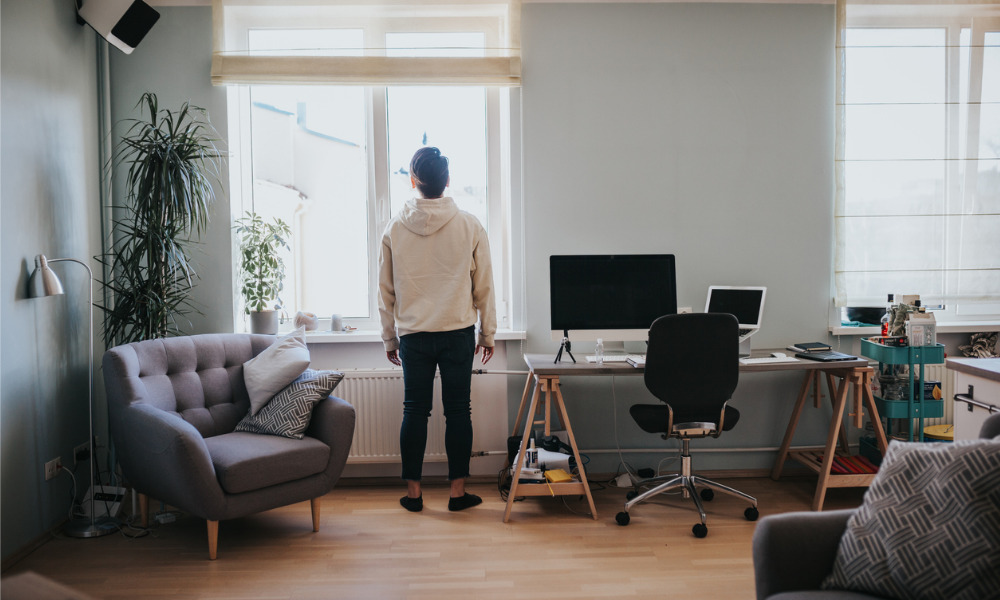Relationships are crucial in the legal profession. They develop the best face to face, writes GC Fernando Garcia

We often hear that, as a result of the pandemic, working from home has become the latest trend, and job seekers across North America are demanding it. Sure, you can save commuting time and travel costs, take your dog for walks during the day, and sometimes, you may not even have to get out of your pyjamas.
However, there are also critical negative repercussions to take into consideration. Some may see my argument as controversial, and WFH can be done effectively for some jobs, but the law is not one of them. Therefore, I highly advise lawyers, especially junior associates and in-house counsel, to avoid asking to work from home or seek a predominantly WFH job. Even if such an arrangement is encouraged at your firm or organization for the sake of your career, it is still critical to find time to make it down to the office at the very least a few days per week.
I will not speak about the psychological damage that can come from failing to interact with others. I am focusing merely on the career repercussions of this decision. From my experience, lawyers do not pick up the experiences and skills of practising law and becoming a good professional in law school or formal meetings with lawyers or clients. The most significant learnings came from the day-to-day interactions and informal meetings with fellow legal professionals, lawyers and clients.
I found that the most valuable experiences arose from the ad-hoc discussions in the hallways while waiting to re-enter hearings or arbitrations, in the brisk walks towards client meetings and from the informal interactions and sharing of experiences with fellow law students, associates and partners. Those early articling days of walking down the halls to ask partners if they needed assistance with any files or if you could attend hearings with them would pay tremendous dividends in demonstrating your interests in getting involved, learning and watching the practice of law happen at the hands of a senior lawyer. New lawyers cannot replicate this learning virtually. Those who develop a reputation for working hard, persevering, building relationships and networks and demonstrating interest are rewarded, while those who hide away tend to fade. WFH is hiding!
Another critical element of being a junior lawyer or associate is the mentorship you receive from senior lawyers. Being able to stop someone as they walk down the hall, spontaneously agree to go to lunch together to bounce ideas or to trade stories is how you learn and how you build these key relationships. These relationships will last throughout your career, and this is how you gain the mentors and sponsors that will help launch your legal career.
But relationships take time and effort. There is also no alternative to meeting face to face. It is rare for solid relationships to flourish in the same manner from joining a virtual meeting or a virtual coffee. An increasingly important aspect of private practice is networking and attending legal events and conferences to woo potential clients and earn referrals. Once you become too comfortable working from home and avoiding the workplace, there is a greater risk that you will also increasingly begin avoiding critical post-work events and networking opportunities. This behaviour is fatal for a private practice lawyer.
As an in-house counsel, I believe that WFH is equally unproductive and, in the long term, should be highly discouraged. Part of our function is to work with and service our internal clients. To do this properly, we must be at work, speaking and interacting with colleagues from numerous other departments. It is also critical to understand the workplace, the players, the internal politics, how the goods or services are produced and how these are provided to the customer. You must understand the operations. You need to understand and buy into the corporate culture to become truly effective. These are learnings that take place from having boots on the ground. You cannot dial it in.
As senior-level GCs, many of us, individually or through our legal associations, have spoken for decades about needing a legal representative with a seat at the boardroom table. Being present demonstrates your value to the team and how you become a true strategic business partner. By becoming a face on the screen, the seat at the table becomes minor and less critical, and you become less and less visible.
Finally, as a lawyer from a diverse background, it is often said that you must work twice as hard to stand out and make your contributions visible to others. WFH will work against the interest of diverse lawyers. It is harder to demonstrate your interest and knowledge and to make an effective contribution when you only interact with senior lawyers and clients via virtual meetings. Those who do not have pre-existing legal connections and networks and those who have already faced obstacles in getting into law will have a more challenging time being seen, heard and considered.
This WFH trend, in my humble opinion, will hurt diverse lawyers the most. It will make it harder to be seen, to build relationships with colleagues and clients, easier to be bypassed in getting critical files and attending client meetings and even more challenging to demonstrate your abilities to others. WFH risks setting back many hard-earned advances in diversity and inclusion within the legal profession, and diverse lawyers will be the most adversely affected.
One of our profession’s most significant values comes from the daily, face-to-face interactions with our fellow lawyers, clients, co-workers and legal professionals. By avoiding the office, you may be seriously stunting the growth of your legal career. When the WFH fad passes, it will also be harder for you to return to “normal.”











